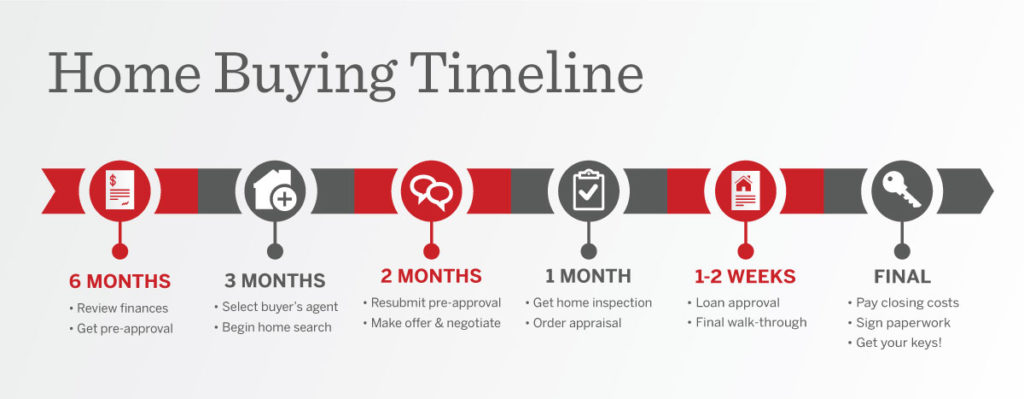Each person has a different set of circumstances to consider when buying a home, including those in the LGBTQ+ community. Fortunately, you don’t have to navigate the process completely in the dark. Whether you’re searching for a home in Portland or Dallas, here are 8 things every LGBTQ+ homebuyer should know, along with resources to help you find and settle into the home of your dreams.
1. Learn your rights according to state and federal laws
The Fair Housing Act
The Fair Housing Act is a federal law that applies to the entire United States to protect “people from discrimination when they are renting or buying a home, getting a mortgage, seeking housing assistance, or engaging in other housing-related activities.” The law states it is illegal to discriminate against any person based on race, color, national origin, religion, sex, familial status, and disability.
Under federal law, there isn’t outright protection for people based on their sexual orientation or gender identity. However, if you’re a member of the LGBTQ+ community and feel you’ve been discriminated against, the complaint can fall into one of the protected classes above.
HUD’s Equal Access Rule
HUD’s Equal Access Rule “requires equal access to HUD programs without regard to a person’s actual or perceived sexual orientation, gender identity, or marital status.” This means, any LGBTQ+ person who receives HUD funding or has HUD-insured loans, is protected against discrimination.
State Laws
Many state and local laws prohibit housing discrimination based on sexual orientation and/or gender identity/expression. You can investigate which policies and laws impact the LGBTQ+ community by using this Human Rights Campaign map.
Currently, the following states ban housing discrimination based on sexual orientation and gender identity/expression:
- California
- Connecticut
- Colorado
- Delaware
- District of Columbia
- Hawaii
- Illinois
- Iowa
- Maine
- Maryland
- Massachusetts
- Minnesota
- Nevada
- New Hampshire
- New Jersey
- New Mexico
- New York
- Oregon
- Rhode Island
- Utah
- Vermont
- Washington
One state bans housing discrimination just based on sexual orientation.
Get pre-approved and secure your dream home
Work with a lender to find the right loan for the home you love.
2. Recognize discrimination and know how to report it
Get pre-approved and secure your dream home
Keep a close eye on the home buying process to ensure you’re receiving the same fair treatment as anyone else. Consult friends, family, and neighbors who have recently bought a property, and compare your experience to theirs — sometimes, it could be that a process only seems over-complicated, but other times, you may discover you’re taking unnecessary additional steps.
Discrimination can take various, often subtle, forms such as:
- A home you’ve shown interest in may suddenly disappear off the market
- A seller may raise their asking price without warning or cause
- A bank may assign you extra piles of paperwork in order to apply for a loan
If you believe you’ve faced discrimination on your journey to buy a home, the following resources can help:
- File a Complaint with HUD
- File a Complaint with your State Government
- Filing a Housing Discrimination Complaint
- Contact ACLU (American Civil Liberties Union)
- Find local fair-housing assistance
3. If you’re unmarried, you shouldn’t be at a disadvantage
Fortunately, federal law declared same-sex marriage legal in all 50 states allowing more people to access the tax advantages of owning a home. Buying property as an unmarried couple is common and your real estate agent and mortgage lender have dealt with before.
For married couples buying a home
The good news is that your marital status won’t hinder your chances of getting a loan, because banks look at each applicant individually no matter what. It can, however, add a few additional steps to the process, and sometimes that can cause delays. If you can find ways to simplify any aspect — for instance, some couples opt to set up a joint bank account to dedicate to mortgage payments, insurance, maintenance and repairs, property taxes, and other home-related costs — go for it.
For unmarried couples buying a home
Buying a home as an unmarried couple presents different financial scenarios to consider such as:
- Which person will take the mortgage tax deduction
- Taxes when adding another person to the title
- Minimizing estate taxes
- Joint tenancy with right of survivorship
Weigh all of your options carefully, keep the lines of communication open with your partner, and most importantly, don’t be afraid to ask questions. Your real estate agent and banking professional are excellent resources, so reach out to them as needed.
4. Don’t underestimate location and your real estate agent
There are many inclusive, welcoming neighborhoods out there — but if you’re shopping from a distance or unsure where to even begin your search, it’s important to communicate with your real estate agent. Your real estate agent is your advocate and teammate as you search for a home so make sure to communicate your needs, concerns, and desires for the community where your home may be located. Find an agent who truly understands your needs and let them know if you feel like you’re veering away from your goal.
You and your agent can even look at state maps of laws and policies that impact the LGBTQ community and see where states and cities stand on certain issues.
5. There are homebuying benefits for veterans
If you and/or your partner is a veteran, you may qualify for VA home loan — and for most military families, that means no down payment. Credit guidelines are much more flexible to create better access, and both interest rates and closing costs tend to be much lower. The VA Funding Fee replaces mortgage insurance, and some families will be exempt from the fee altogether.
For more information, check out the following resources:
- VA Home Loans — Eligibility
- American Veterans for Equal Rights
- What is a VA Guaranteed Home Loan?
- 10 Things Many Borrowers Don’t Know About VA Loans
6. Trust your instincts.
Many homebuyers will tell you that when they found the right home, they “just knew” or “had a feeling.” That isn’t to say that if you find a great home but don’t feel warm and fuzzy that it’s a bad choice, but often, you know your dream home when you see it.
It’s important to trust any negative feelings you might get about a home or neighborhood. While the country continues to make progress in terms of equal access for the LGBTQ+ community, some remain resistant. If you visit a home that’s perfect on paper, but if you consistently get the impression that you wouldn’t be received warmly, it might be worth looking elsewhere.
7. Be prepared for an adjustment period.
Even once you’ve moved into your new home, there’s going to be an adjustment period for everyone. Each relationship and situation is unique but remember that these kinds of moving pains are normal and pass with time. Under this kind of normal stress, it can make all the difference to have a therapist to help you refocus on the positives of your relationship and the exciting new path ahead of you!
If you have children, they’ll likely have their own feelings about the move. Help them see the light in the situation and don’t discount their mixed or negative feelings. Do what you can to help them adjust by getting them involved in extracurriculars and providing ample opportunity for them to make new friends.
You can check out these resources for more help:
- Moving in Together: Keeping the Peace in Your New Love Nest
- Helping Kids Cope With Moving
- COLAGE – connects people with one or more LGBTQIA+ parent or caregiver
- Prevent Bullying — StopBullying.gov
8. The entire home buying process can take time
Whether you’re moving across the country and shopping from afar or the bank delays approval on your loan, the home buying process can take anywhere from a couple of weeks to several months. Review our Ultimate Step-by-Step Guide to Buying a House to get a better understanding of the complete process. You can also check out our Home Buying Guide for more resources.



























 United States
United States Canada
Canada